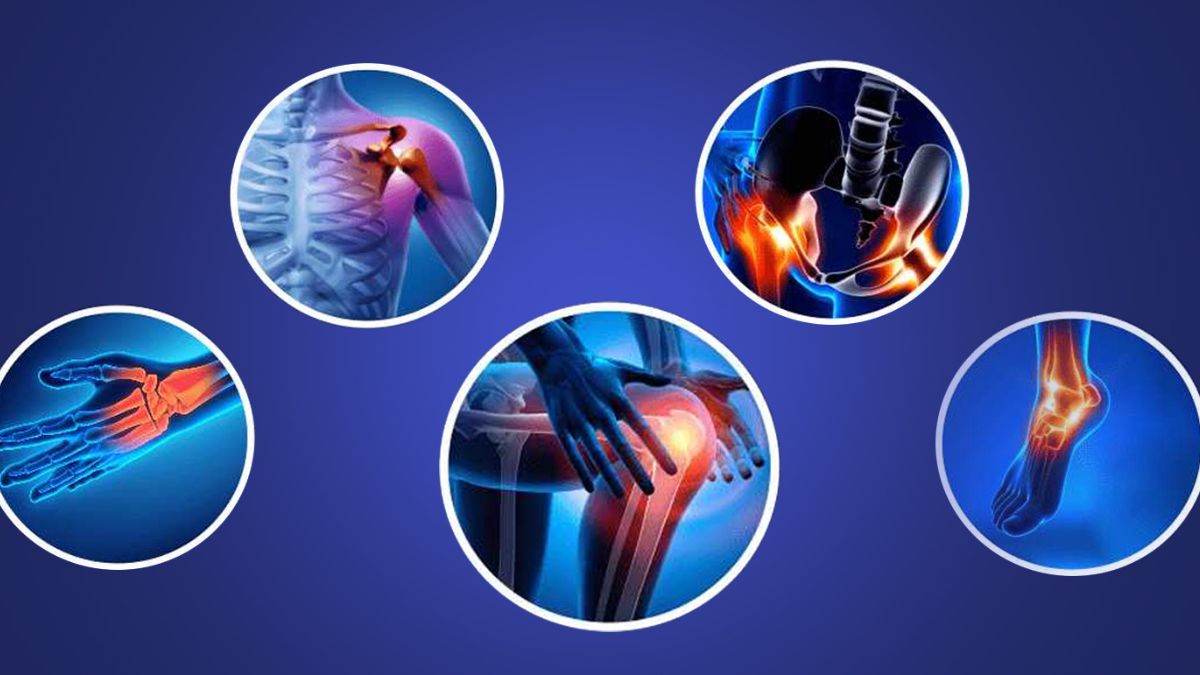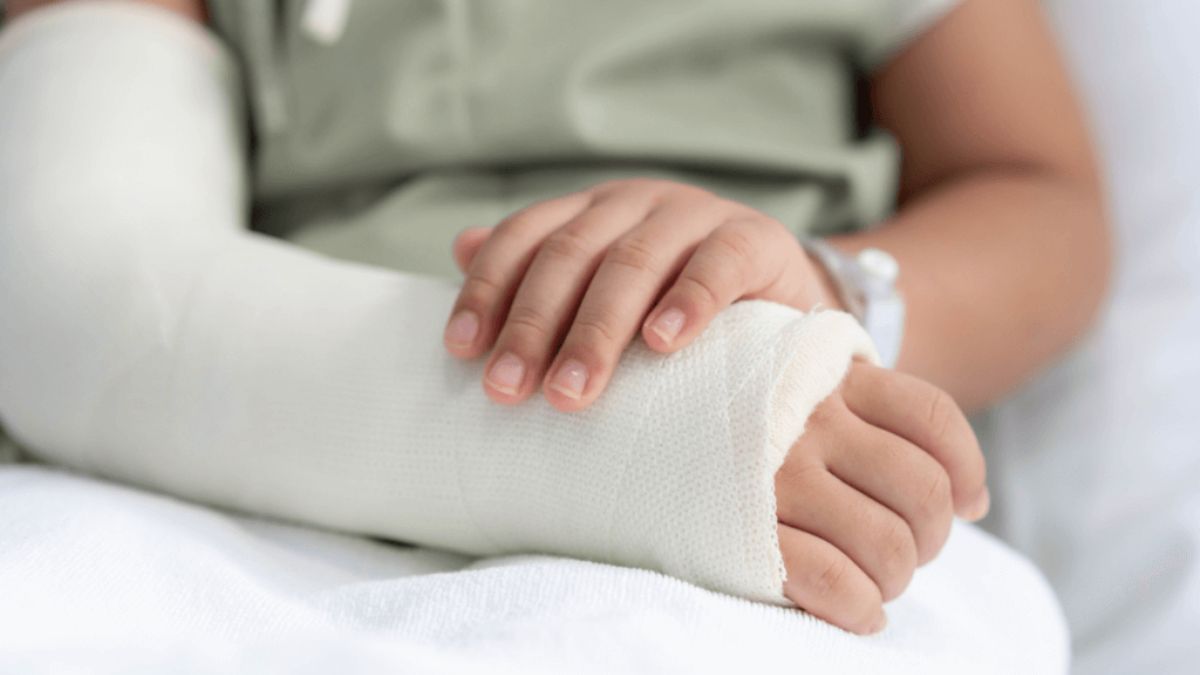HEALTH
Navigating Common Orthopedic Challenges and Solutions in Everyday Life

Orthopedic health is a cornerstone of living an active and fulfilling life. It encompasses the well-being of bones, joints, and muscles and is essential to daily activities. It’s not exclusive to athletes or labor-intensive professions; everyone can benefit from learning the basic principles of orthopedic health. A surprising number of people suffer from musculoskeletal issues due to ignorance or neglect. Tackling these problems proactively ensures long-term wellness.
Modern life, with its sedentary work environments and often hectic pace, demands greater attention to orthopedic concerns. Becoming aware of the significant yet frequently overlooked aspects of musculoskeletal health can lead to improved prevention strategies and treatments, thereby maintaining your overall quality of life.
Recognizing Common Orthopedic Issues
Common orthopedic issues, such as arthritis, fractures, back pain, and joint disorders, affect millions globally. The symptoms may initially seem benign—like joint stiffness or mild discomfort—but they are signals that should prompt immediate attention. Knowledge about Ortho resources can be pivotal in preventing and managing orthopedic challenges. Recognizing these symptoms early can effectively guide you in implementing preventative measures or exploring therapeutic options.
Acknowledging that ordinary activities can accumulate significant stress on your musculoskeletal system can foster a more conscientious approach to daily tasks. Identifying the root cause of your discomfort is paramount to addressing it meaningfully.
Prevention Strategies for a Healthier Life
Strategizing to prevent orthopedic ailments involves a multifaceted approach—incorporating a balanced diet rich in calcium and vitamin D, engaging in physical activities, and avoiding high-risk motions. The Mayo Clinic advises adopting ergonomic practices that significantly lower the risk of developing orthopedic complications. According to a report by WebMD, these conditions often result from prolonged wear and tear, poor posture, or injuries. For instance, adjusting the angle of your computer screen or ensuring your chair height supports your lower back correctly can make a huge difference.
Simple Lifestyle Modifications:
- Incorporate moderate physical activity into your daily routine, aiming for at least 30 minutes daily.
- Stay hydrated and maintain a diet with essential nutrients to support bone health.
- Develop a stretching routine to enhance flexibility and reduce the risk of injuries.
Such habits, though simple, lay the groundwork for a resilient musculoskeletal system by fortifying bones and joints against the everyday stresses of life.
Simple Remedies for Orthopedic Pain
Home remedies often provide a viable first line of defense for occasional orthopedic pain flare-ups. A treatment regimen that includes rest, ice, compression, and elevation (R.I.C.E.) can markedly reduce inflammation and speed up recovery. Over-the-counter analgesics can alleviate mild to moderate pain, but it’s advisable to consult with a healthcare professional to ensure safe usage.
Engaging in physical therapies or adopting alternative options like acupuncture can also help manage pain. The effectiveness of these interventions, underscored by a holistic approach, offers the dual benefits of alleviating pain while improving overall physical health.
The Role of Exercise in Orthopedic Health
Exercise is indispensable in preserving and enhancing orthopedic health. It offers numerous benefits, such as strengthening muscles, improving joint function, and boosting overall endurance. To avoid injury, it’s essential to choose exercises that best align with individual capabilities. Activities like yoga or Pilates, known for their low-impact nature, can improve flexibility and strengthen core muscles.
Adding variability to your exercise routine can help you use different muscle groups actively and reduce the risk of repetitive strain injuries. An exercise program tailored to your needs provides an optimal balance for maintaining musculoskeletal health.
When to Seek Professional Help
While minor orthopedic issues can be managed independently, there are instances where seeking professional help is crucial. Persistent pain that hampers your ability to perform daily tasks, significant swelling, or a history of falls with resultant injuries merits timely evaluation by a specialist. Early intervention can prevent the progression of potential long-term damage.
A consultation with an orthopedic surgeon or a specialist in musculoskeletal disorders can help gather insights into the risk factors and treatment options available, ensuring you make informed decisions about your health.
Innovative Treatments in Orthopedics
The field of orthopedics is continuously evolving, with innovative treatments improving patient outcomes. Techniques like arthroscopic surgery offer minimally invasive alternatives to traditional procedures, reducing recovery time and the risk of complications. Furthermore, regenerative medicine approaches, such as Platelet-Rich Plasma (P.R.P.) therapy, promise to enhance the body’s natural healing process, providing options for conditions previously deemed untreatable.
Staying updated with these advancements can empower patients and their families to explore various possibilities tailored to their unique conditions and expectations, thus achieving better overall results.
Embracing a Holistic Approach to Orthopedic Wellness
A holistic approach to orthopedic wellness advocates integrating traditional medical treatments with complementary therapies, emphasizing the interconnectivity of the body and mind. Mindfulness, massage therapy, and dietary adjustments can be crucial in comprehensive care. Combined with understanding your unique physiological needs, these methods can foster a resilient framework for orthopedic health.
Choosing a well-rounded regimen that considers mental, emotional, and physical health will contribute to orthopedic wellness and overall life satisfaction. These strategies can generate lasting improvements and empower individuals to lead healthier, more active lives.
HEALTH
Essential Considerations After a Personal Injury Incident

What to Do Immediately After an Incident
A personal injury incident can strike unexpectedly, leaving you feeling disoriented and vulnerable. In these crucial moments, your priority should be ensuring everyone’s safety, including yours. Begin by assessing the environment for hazards such as traffic, unstable structures, or exposed electrical elements. If necessary, quickly move to a safe location or, if incapacitated, signal for help.
Once safety has been established, it is essential to maintain a sense of calm. While this is challenging, keeping a clear mindset enables sound decisions. You may already consider the potential legal ramifications and wonder about personal injury law during this time. This understanding is crucial as it informs how you handle the initial stages after an injury.
Understanding Your Rights
Understanding your rights following a personal injury can be a source of empowerment. Individuals affected by such incidents frequently encounter many decisions, ranging from medical care to possible legal recourse. Typically, victims have the right to seek compensation for their injuries, which may encompass physical damage, emotional suffering, and financial setbacks, including lost wages or medical expenses. Engaging a personal injury lawyer can facilitate obtaining the compensation you are entitled to, as they can assist in navigating the legal complexities on your behalf. Having a well-informed strategy can significantly impact the outcome of any legal matter. To enhance your understanding, explore comprehensive resources that explain your legal rights as an injury victim.
Gathering Necessary Evidence
The strength of your compensation claim hinges significantly on the evidence gathered at the scene. Documenting the scene might seem challenging in the chaotic aftermath of an accident, but it is a vital step. Take clear photographs from multiple angles, capturing details like road conditions or visible injuries.
Should witnesses be available, collect their contact details and courteously request their event description. Written statements or voice recordings are invaluable. Secure any video footage from nearby cameras, such as traffic or security cameras, which could provide an unbiased account of the incident.
Seeking Medical Attention
Medical attention should be sought immediately after ensuring safety, even if injuries appear to be minor. Prompt medical evaluations are necessary for your health and serve as critical evidence. Minor aches or bruises indicate underlying injuries that could have been left unchecked.
A detailed medical report is an official record of your injuries and is often crucial when filing compensation claims. For instance, understanding the importance of medical procedures like X-rays can better illustrate how injuries are documented and assessed. Skipping this step can lead to complications in your recovery and legal proceedings.
Reporting the Incident
Once immediate concerns are managed, you should report the incident to the authorities. This includes contacting the police to file an official report. This report creates an official and unbiased account of what transpired, which lawyers and insurance companies often examine closely.
Be honest and concise in your account to the authorities. Provide them with the collected evidence, but refrain from speculating about fault or liability, as emotions and stress can colour your perspective.
Consulting a Professional
Personal injury cases often present complexities and involve nuanced details requiring expert guidance. Engaging a personal injury attorney can offer valuable clarity and assistance. A lawyer represents your interests and expertlymanoeuvress through the intricacies of the legal system on your behalf, guaranteeing that you obtain the compensation to which you are entitled.
Prepare for these consultations by gathering all relevant documents. Questions to discuss include your case’s strengths and the lawyer’s experience with similar claims. This relationship will be instrumental, so choose a lawyer whose communication style you find agreeable and who clearly outlines their strategy and expectations.
Navigating Insurance Claims
Filing an insurance claim demands patience and precision. Write down all correspondence with the insurance company and keep detailed records of every exchange. Respond promptly to communications and provide all requested documentation, including medical reports and evidence collected at the scene.
Insurance companies aim to minimize payouts, so be prepared to advocate for yourself firmly. Proactively engaging in the process with a straightforward narrative supported by evidence builds a compelling case for a fair settlement. Avoid rushing the process; thoroughness now can prevent complications later.
Staying Informed and Educated
Finally, education is an ongoing process that bolsters your readiness for personal injury incidents. Continuously familiarize yourself with personal injury law as it evolves with new precedents and legislative changes. This knowledge assists you in the immediate aftermath of an incident and prepares you for potential future scenarios.
Explore readings from reputable legal sources, attend workshops, or consult experts to enhance your understanding. Being well-informed isn’t just about being prepared—it’s about staying empowered in all legal and personal protection aspects.
HEALTH
Factors That Affect Breast Implant Prices in Baton Rouge

Choosing to undergo breast augmentation is a significant decision, and understanding the cost is essential for making an informed choice. The price of breast implants can differ depending on factors influencing the overall cost. For those considering this procedure, it’s essential to understand what affects the price.
In Baton Rouge, breast implant costs vary greatly based on multiple factors. From the surgeon’s experience to the type of implants, every element contributes to the final price of the procedure. When considering a procedure, it’s essential to research about the breast implants Baton Rouge price to ensure it aligns with your budget and expectations.
Surgeon’s Experience and Reputation
One of the most significant factors determining the price of breast implants is the surgeon’s experience and reputation. Due to their expertise, experienced, board-certified surgeons specializing in breast augmentation often charge more. They provide a higher level of care, and their track record of successful surgeries justifies the cost. While opting for a more affordable surgeon might seem appealing, the quality and safety of the surgery should be the priority. An experienced surgeon in Baton Rouge ensures the best results, making the investment worthwhile in the long run.
Type of Implants Chosen
The type of implants chosen by the patient significantly impacts the overall cost. Saline implants are typically more affordable than silicone implants, which are more expensive due to their construction and natural feel. Patients can also choose between textured or smooth implants, which may cost differently. The decision on implant type depends on factors like desired aesthetic results and personal budget. A consultation with a qualified surgeon in Baton Rouge will help patients decide which implant best suits their body and goals while also considering the cost.
Location and Market Factors
Local market conditions can also influence the cost of breast implants in Baton Rouge. Prices can vary depending on the demand for cosmetic surgery in the area and the number of qualified surgeons available. In areas with higher demand for breast augmentation, the cost may increase. The local cost of living and the reputation of specific clinics can also affect pricing. Patients should research local clinics and compare prices while keeping in mind that the quality of care and expertise should not be compromised for a lower price.
Facility and Anesthesia Fees
The surgical facility and anesthesia fees are important factors in the overall price. The location of the surgery center, whether it’s an outpatient clinic or a hospital, can affect the cost. Some clinics charge higher fees for their facilities, which may include more advanced equipment and higher standards of care. Additionally, anesthesia fees vary depending on whether general or local anesthesia is required. General anesthesia tends to be more expensive than local anesthesia. Patients should ask for a detailed breakdown of all these costs during the consultation to ensure they fully understand the price.
Additional Considerations When Seeking Breast Implants
When considering breast augmentation, finding a provider that offers personalized care throughout the entire process is essential. Many clinics provide detailed consultations where patients can discuss their goals, review different implant options, and receive advice tailored to their needs. These consultations help patients understand the costs and the level of care they can expect. By choosing a clinic in Baton Rouge that emphasizes patient satisfaction and safety, individuals can ensure a smoother and more successful experience.
Breast implants Baton Rouge price can vary based on factors such as the surgeon’s experience, the type of implants selected, the complexity of the procedure, and associated facility and anesthesia fees. Understanding these elements helps patients plan financially and choose the correct option. By consulting with a reputable surgeon, prospective patients can ensure they receive the best value for their investment while achieving their desired results.
HEALTH
Stress and Ovarian Cysts: Can Anxiety Make Your Symptoms Worse?

When dealing with ovarian cysts, the physical symptoms—like pelvic pain, bloating, and irregular periods—can be overwhelming enough on their own. However, for many women, the emotional and psychological aspects of living with ovarian cysts are just as significant. One factor that often exacerbates these symptoms is stress.
But how exactly does stress affect ovarian cysts, and can anxiety make your symptoms worse? In this blog, we’ll explore the intricate relationship between stress and ovarian cysts, how stress might impact the severity of your ovarian cyst symptoms, and what you can do to manage both the physical and emotional aspects of dealing with ovarian cysts.
What Are Ovarian Cysts?
Before diving into how stress and anxiety can affect ovarian cysts, it’s important to understand what they are. Ovarian cysts are fluid-filled sacs that develop on or inside the ovaries. They are relatively common, especially in women of reproductive age, and most ovarian cysts are benign (non-cancerous). Many women experience no symptoms at all, while others may have pain or discomfort.
There are several types of ovarian cysts, with the most common being functional cysts, which occur during the menstrual cycle. These cysts usually resolve on their own without treatment. However, some women may experience more complex cysts that can cause symptoms like:
- Pelvic or abdominal pain
- Bloating
- Irregular or heavy periods
- Pain during sex
- Nausea or vomiting
While most cysts are harmless and go away on their own, some can grow, cause complications, or affect fertility. For women experiencing persistent symptoms, stress can be both a contributing factor and a result of dealing with a chronic condition like ovarian cysts.
The Link Between Stress and Ovarian Cysts
Stress is an inevitable part of life, but when it becomes chronic, it can have a profound impact on your physical health, including your reproductive system. Research shows that stress affects the body in many ways, from disrupting hormone levels to causing inflammation, both of which can influence the formation or worsening of ovarian cysts.
Here’s how stress might contribute to or worsen ovarian cyst symptoms:
Hormonal Imbalance
Stress triggers the release of the “stress hormone” cortisol. Cortisol is part of the body’s natural fight-or-flight response, which is essential for managing acute stress. However, prolonged stress can lead to consistently high cortisol levels, which may disrupt the delicate balance of other hormones involved in the menstrual cycle, such as estrogen and progesterone.
An imbalance in these hormones can have a direct effect on ovarian function. For example, high cortisol levels may prevent the proper release of eggs from the ovaries, a process known as ovulation. Without proper ovulation, the ovarian follicle can become a cyst. Additionally, hormonal imbalances can cause irregular periods, which may make cysts more likely to form or grow.
Increased Inflammation
Chronic stress also triggers the body’s inflammatory response. Inflammation can interfere with normal bodily functions, including those of the reproductive system. Inflammation may cause the ovaries to become more susceptible to cyst formation or exacerbate the symptoms of existing cysts, leading to increased pain, bloating, or discomfort.
In some cases, inflammation may lead to more serious complications, such as the rupture of a cyst, which can result in severe pain and, in rare cases, infection.
Muscle Tension and Pain Perception
When stressed or anxious, the body tends to tense up, particularly around the shoulders, neck, and abdominal area. This muscle tension can increase pelvic discomfort in women with ovarian cysts. The sensation of pain or pressure caused by a cyst may feel more intense when your muscles are tight and stressed.
In addition, stress can alter your perception of pain, making you more sensitive to discomfort. This means that the pain from a small ovarian cyst might feel much worse when you’re under stress or anxious. This can create a cycle where anxiety about the cyst causes more stress, which in turn makes the pain feel more unbearable.
Gut and Digestive Issues
Stress can also have a significant impact on the digestive system. Anxiety and stress can lead to issues like bloating, constipation, and stomach cramps—symptoms that overlap with the symptoms of ovarian cysts. When you’re already dealing with abdominal discomfort due to a cyst, additional digestive problems caused by stress can make everything feel worse.
Furthermore, chronic stress can lead to conditions like irritable bowel syndrome (IBS), which may increase bloating and digestive distress, further exacerbating the discomfort associated with ovarian cysts.
Reduced Immune Function
Stress has a detrimental effect on the immune system. Prolonged stress can weaken immune function, making the body less able to deal with infections or inflammation. This can affect your ovaries, increasing the likelihood of complications such as cyst rupture or infection. Additionally, a weakened immune system may delay the healing of cysts or prolong the symptoms associated with them.
How Anxiety Can Impact Ovarian Cyst Symptoms
Anxiety, which often accompanies stress, can also play a major role in exacerbating ovarian cyst symptoms. Anxiety causes the body to stay in a heightened state of alert, activating the fight-or-flight response even when there is no immediate danger. This prolonged state of arousal can lead to physical changes in the body that make ovarian cyst symptoms worse.
Some specific ways anxiety can affect ovarian cysts include:
- Hypervigilance about symptoms: When you’re anxious, you may become hyper-aware of any sensations in your body. This can cause you to focus excessively on your ovarian cyst symptoms, making them seem worse than they are. This heightened awareness can also lead to unnecessary worry and stress.
- Sleep disturbances: Anxiety can interfere with your ability to sleep, leading to fatigue and an overall decrease in your ability to cope with physical symptoms. Poor sleep can also increase your sensitivity to pain, making the discomfort from ovarian cysts more difficult to manage.
- Behavioral effects: Anxiety can lead to unhealthy coping mechanisms, such as overeating or drinking alcohol, which can worsen inflammation and disrupt hormone balance, potentially making ovarian cysts more problematic.
Managing Stress and Anxiety to Relieve Ovarian Cyst Symptoms
Given the connection between stress, anxiety, and ovarian cysts, managing your emotional well-being is crucial for alleviating symptoms. Here are several strategies you can incorporate into your daily routine to help reduce stress and anxiety:
Practice Mindfulness and Meditation
Mindfulness practices, such as meditation and deep breathing exercises, can help calm your nervous system, reduce cortisol levels, and ease physical tension. Even just 10–15 minutes of mindfulness a day can help regulate your stress levels and improve your overall sense of well-being.
Exercise Regularly
Exercise is a powerful tool for stress reduction. Physical activity helps release endorphins, which are natural mood boosters, and can also help improve sleep quality and reduce anxiety. Aim for activities you enjoy, such as walking, swimming, or yoga, which can also alleviate muscle tension and promote relaxation.
Manage Your Diet
A balanced diet can play a role in reducing stress and supporting your reproductive health. Foods rich in antioxidants, omega-3 fatty acids, and fiber can help reduce inflammation and support hormonal balance. Limiting caffeine and alcohol intake can also help stabilize your mood and energy levels.
Therapy and Counseling
If anxiety is affecting your daily life, talking to a therapist can be beneficial. Cognitive-behavioral therapy (CBT) is particularly effective for anxiety and stress management. A mental health professional can help you develop coping strategies and reduce anxiety related to your cyst symptoms.
Stay Connected with Support Networks
Talking to friends, family, or others who are going through similar experiences can provide emotional relief. Support groups, whether in-person or online, can be a great way to share your concerns, receive advice, and feel understood.
Seek Medical Advice
If you’re experiencing significant pain or discomfort from ovarian cysts, it’s essential to speak with a healthcare provider. They can provide treatment options, including medication for pain management or hormonal regulation. In some cases, they may recommend surgery to remove the cyst, especially if it is causing severe symptoms.
Conclusion
Stress and anxiety can significantly impact the severity of ovarian cyst symptoms, from hormonal imbalances to increased pain and digestive issues. While it may not be possible to completely eliminate stress from your life, managing it effectively can help reduce the physical and emotional burden of dealing with ovarian cysts. By incorporating stress-reduction techniques like exercise, mindfulness, and proper medical care, you can help improve your overall health and minimize the impact of ovarian cysts on your life.
If you’re struggling with symptoms of ovarian cysts or experiencing heightened anxiety, don’t hesitate to consult with a healthcare provider. Together, you can develop a comprehensive plan to manage both your physical and emotional well-being.
-

 TECHNOLOGY7 months ago
TECHNOLOGY7 months agoAbout Technology From Axiumtechnet: Exploring the Beautiful Future
-

 TOPIC6 months ago
TOPIC6 months agoInvitation Printing: How to Create Perfect Invitations for Any Occasion
-

 TECHNOLOGY6 months ago
TECHNOLOGY6 months agoThe Rise of Hqpotner: Exploring Its Impact on the Blogging Community
-

 TECHNOLOGY7 months ago
TECHNOLOGY7 months agoAlpha Technologies Fxm350 Snmp Oid: Comprehensive Overview
-

 BUSINESS7 months ago
BUSINESS7 months agoGoogle Business Profile Kgmid Extractor: A Deep Dive
-

 HEALTH7 months ago
HEALTH7 months agoHarriet Goldfischer Providence Health: Ultimate Guide
-

 BUSINESS6 months ago
BUSINESS6 months ago36dview Photography Business Info: Your Ultimate Guide
-

 BUSINESS7 months ago
BUSINESS7 months agoDining Delights: 200 E Business Hwy 23 Walsco Tx
